ScienceXplosion - Painting at the Bernoulli
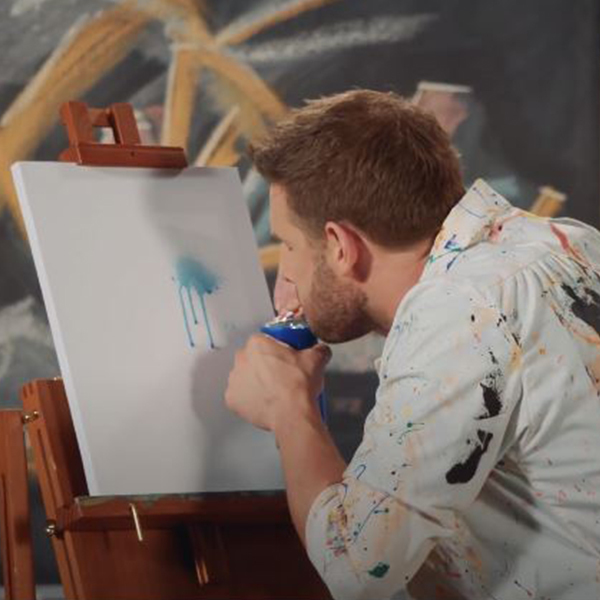
Eric makes art with a straw, thanks to the Bernoulli principle

Eric makes art with a straw, thanks to the Bernoulli principle
How does this align with my curriculum?
On this episode of ScienceXplosion, Eric makes his own airbrush and learns more about the Bernoulli Principle. It's not magic, it's science!
BACK TO THE SCIENCEXPLOSION HOME PAGE
Now it's your turn!
The Bernoulli Principle: 2 Simple Experiments
Did you know?
Daniel Bernoulli is the scientist and mathematician after which the Bernoulli principle is named. He worked on understanding how fluids work, such as how pressure changes when you block a part of a water hose with your fingers.
WHAT DO YOU NEED?
- Paper
- Cardstock (such as from a cereal box)
- Scissors
- Plasticine or tape
- A toothpick
- Hole punch
- A flexible or bent drinking straw
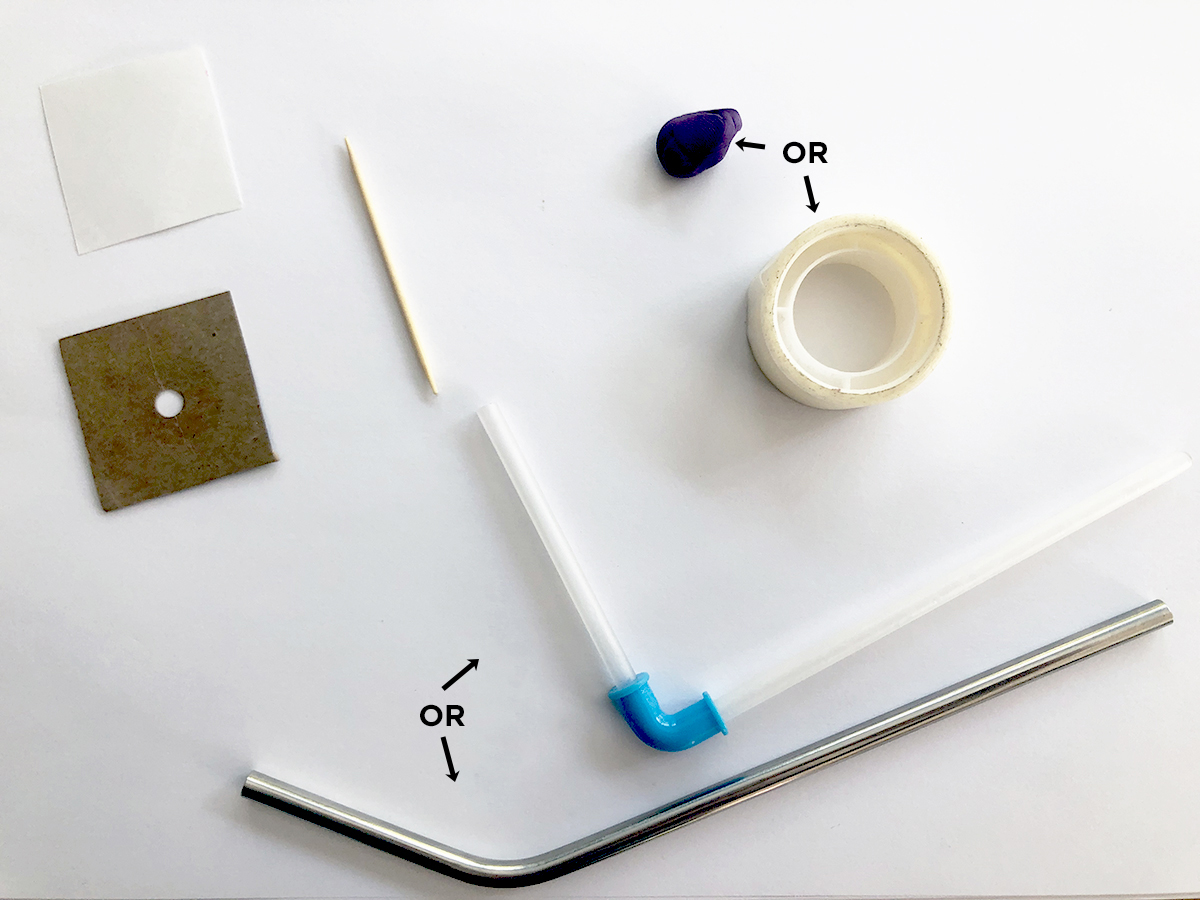
WHAT DO YOU DO? Experiment 1
Make a prediction. If you blow down on a piece of paper, what will happen? Try this short experiment to find out!
- Place and hold a sheet of paper slightly below your mouth.
- Blow hard towards the top of the paper. What do you observe?
- Try blowing gently. What did you observe?
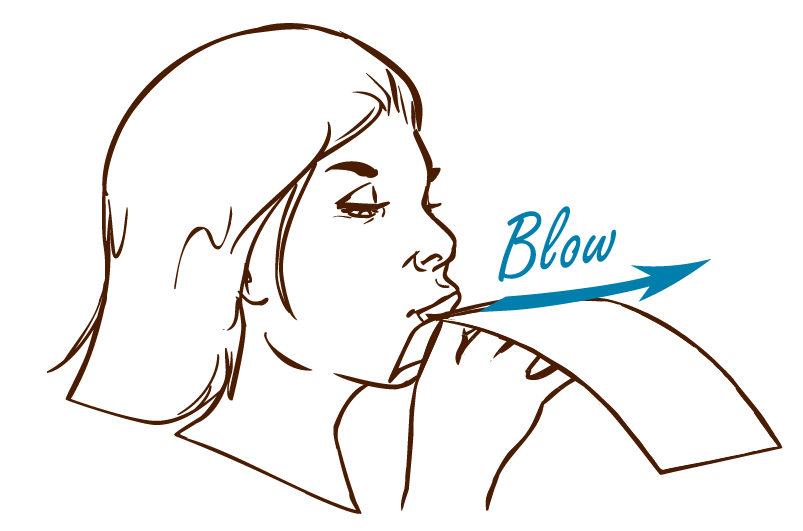
You can watch this video for a demonstration and a bigger version of the same experiment!
WHAT DO YOU DO? Experiment 2
- Cut a piece of paper that is about 4 x 4 cm.
- Cut a piece of cardstock that is about 4 x 4 cm
- Punch a hole in the center of the cardstock with a hole punch. You may need adult help with this.
- Place the cardstock on the top of the straw, like a tabletop, and line up the hole of the cardboard with the centre of the hole in the straw. Use some tape or plasticine to hold the cardboard square to the straw. Make sure the cardboard fits tightly on the straw.
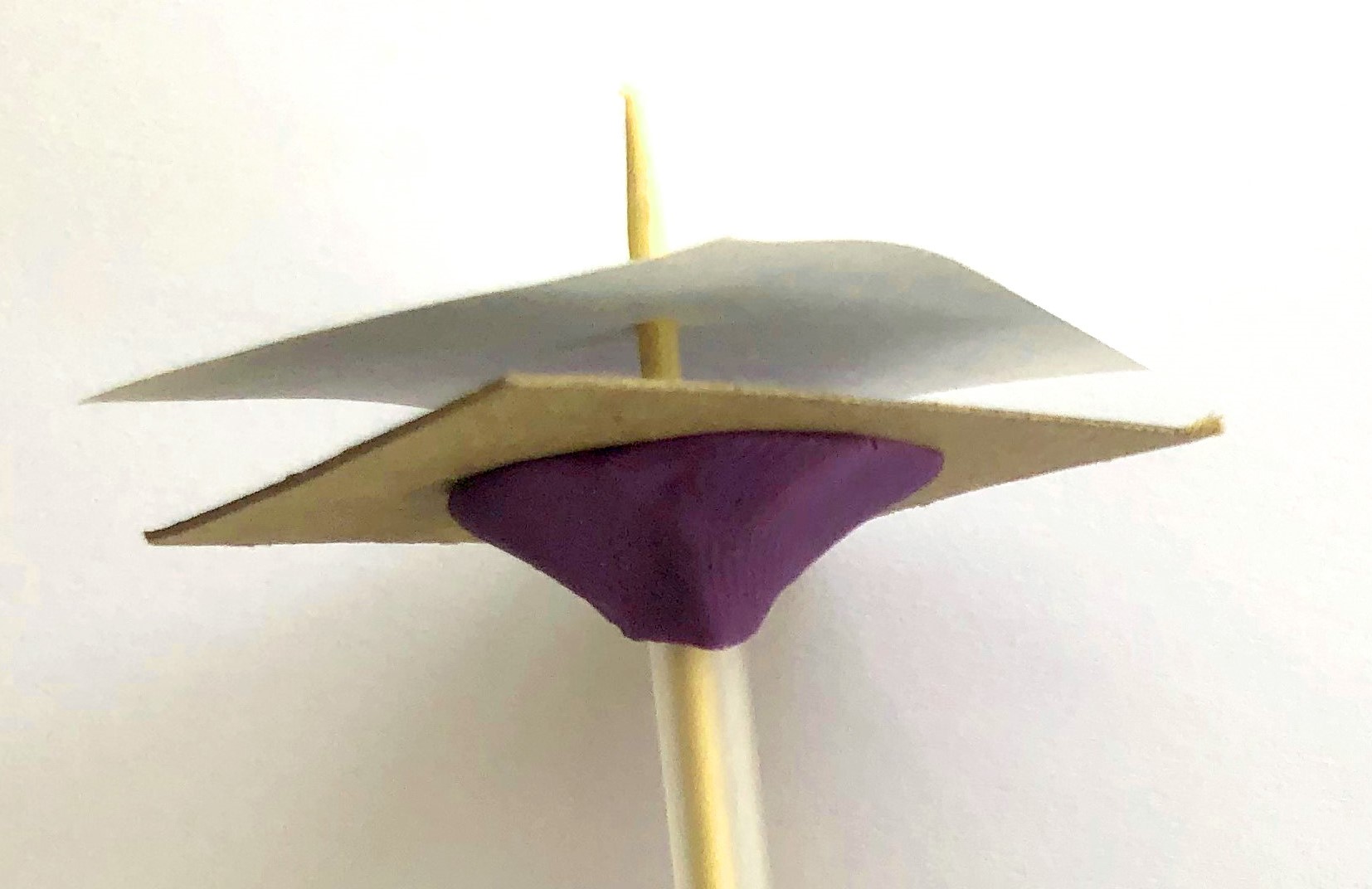
- Poke the toothpick through the middle of the piece of paper. Push the paper about a third the length of the toothpick.
- Place the toothpick with the paper and cardboard into the straw.
- Blow hard into the open end of the straw. Are you able to move the paper?
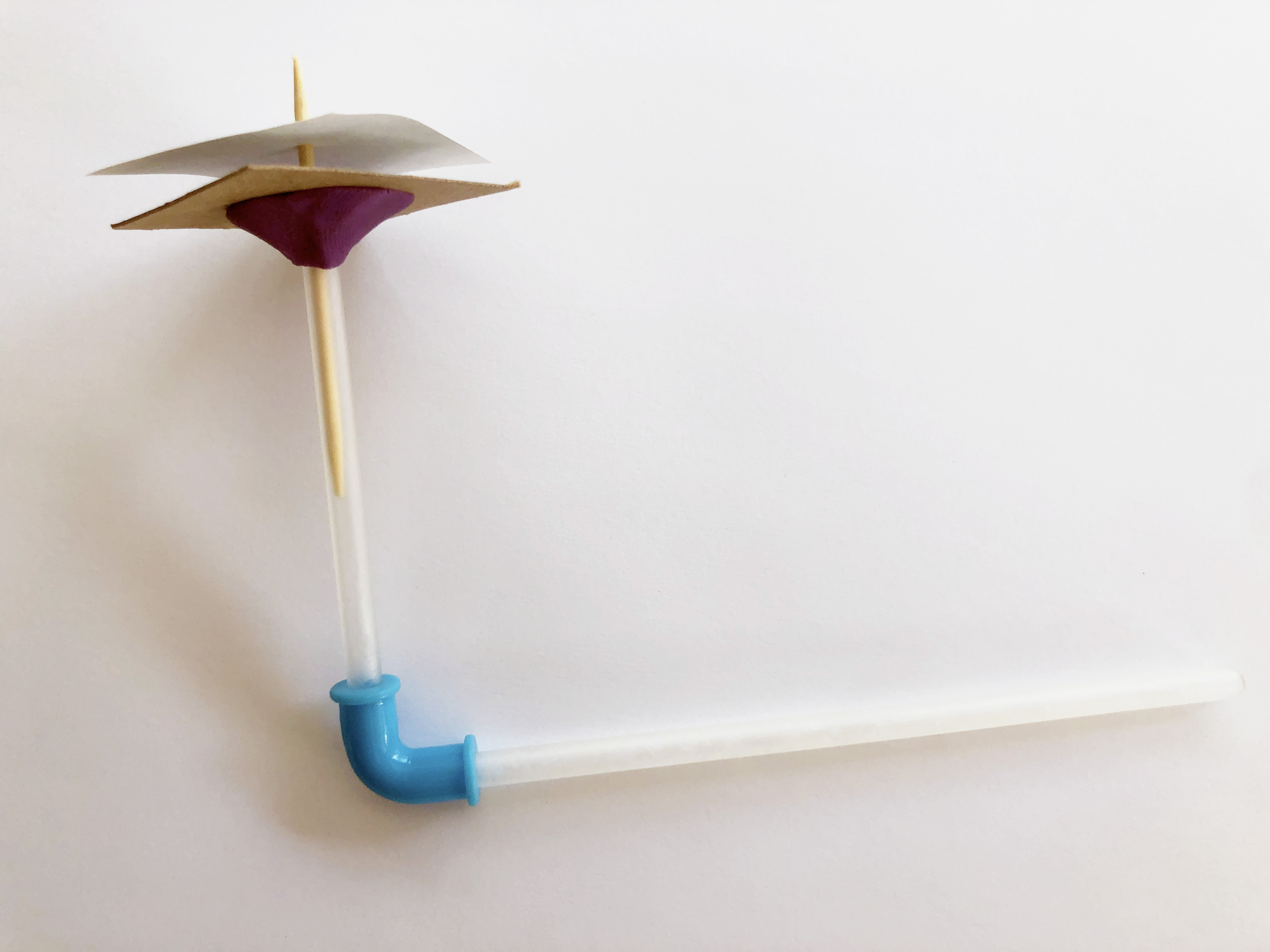
WHAT’S THE POINT?
What you saw in this experiment is called the Bernoulli Effect.
Liquids and gases are both fluids. According to Bernoulli, When a fluid moves quickly, its pressure goes down. So when you blow hard, the fast moving air has a lower air pressure than the surrounding air. Since the pressure of the air surrounding the straw is higher than the pressure caused by you blowing into the straw, the paper will be pushed downwards towards the cardboard.
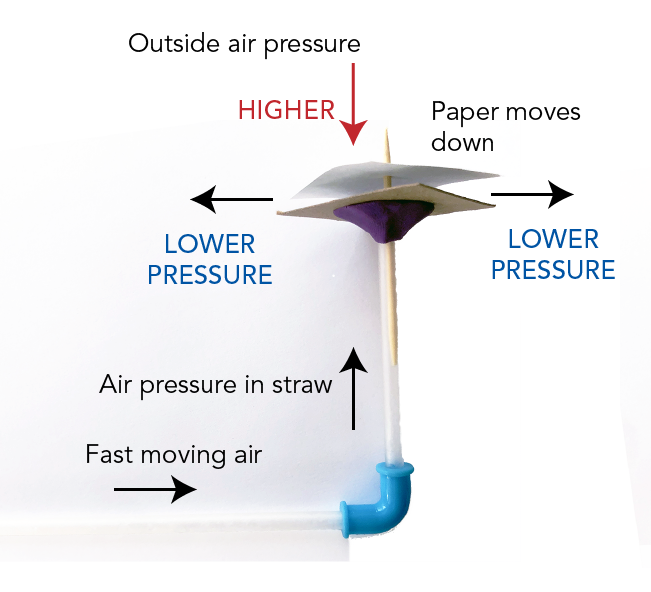
Understanding how fluids move is important for many reasons. Meteorologists need to know how the air is moving in order to predict weather. Aerospace engineers need to know how air moves around planes to help make planes that move through the sky safely. Understanding the Bernoulli effect can even apply in sports (read below)!
WHAT ELSE?
The Magnus effect is the Bernoulli effect applied to a rotating object.
- Try out this easy experiment to see it for yourself!
- Watch this amazing demonstration over a really high dam!
- You can read about all the science in Why Do Curveballs Curve?
With over 20 years experience, GAPC Entertainment’s team creates stories with power, creativity and reach. GAPC Entertainment is a vibrant Canadian production company with a passion for creating quality programming for national and international audiences on all platforms.
GAPC Entertainment produces creative, diverse, and compelling content across most genres, including performing arts, biopics, science, history, drama, and award-winning children’s educational programs.
